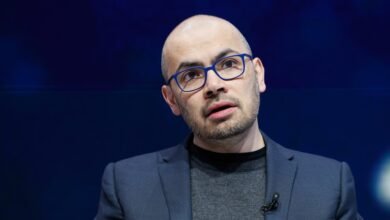Ex-OpenAI Engineer Reveals the Truth About Working There

▼ Summary
– Calvin French-Owen, an engineer who worked on OpenAI’s Codex, resigned to return to startup founding after previously co-founding Segment, which was acquired by Twilio.
– OpenAI experienced rapid growth, expanding from 1,000 to 3,000 employees in a year, leading to operational chaos in communication, processes, and team coordination.
– The company maintains a fast-paced, startup-like culture with minimal bureaucracy, but this results in duplicated efforts and inconsistent coding quality across teams.
– OpenAI prioritizes practical safety concerns like hate speech and abuse over speculative long-term risks, despite external criticism about its safety focus.
– The company operates in a highly scrutinized environment, with internal secrecy to prevent leaks, while actively monitoring and responding to viral social media discussions.
A former OpenAI engineer has pulled back the curtain on what it’s really like inside one of the world’s most scrutinized AI companies, revealing surprising insights about its rapid growth, chaotic culture, and approach to safety. Calvin French-Owen, who recently left the company after working on its Codex project, shared an unfiltered look at his experience in a detailed blog post.
French-Owen wasn’t pushed out, he left by choice, eager to return to startup life after co-founding Segment, a customer data platform acquired by Twilio for $3.2 billion. His time at OpenAI, however, gave him a front-row seat to the company’s explosive expansion. The workforce tripled from 1,000 to 3,000 employees in just one year, a staggering pace that brought growing pains.
Speed came at a cost. Scaling that quickly strained everything from internal communication to product development. Teams operated with startup-like autonomy, but that freedom led to duplicated efforts, multiple versions of tools like queue management systems piled up in what French-Owen called the “back-end monolith,” a messy but functional code repository. Performance issues were common, though leadership actively worked on fixes.
Despite the chaos, OpenAI retained a scrappy, launch-driven mentality. French-Owen’s team built and deployed Codex, a coding assistant rivaling Anthropic’s Claude and other AI tools, in just seven weeks, fueled by sleepless nights and relentless effort. The payoff? Instant traction. “I’ve never seen a product gain so much traction just by appearing in a sidebar,” he wrote, crediting ChatGPT’s massive user base for the rapid adoption.
Secrecy permeated the culture, with employees under tight scrutiny to prevent leaks. Yet, the company kept a close eye on social media, especially X (formerly Twitter), where viral discussions often triggered internal reactions. “This company runs on Twitter vibes,” a colleague joked.
One of the most striking revelations countered common criticisms about OpenAI’s safety priorities. While external critics accuse the company of neglecting long-term AI risks, French-Owen emphasized that practical safety concerns, hate speech, political manipulation, bio-weapon risks, dominated internal discussions. Researchers also studied broader existential threats, but with hundreds of millions relying on ChatGPT for everything from medical advice to emotional support, immediate safeguards took precedence.
The pressure was palpable. Governments, competitors, and the public scrutinized every move. “The stakes feel really high,” French-Owen noted, capturing the intensity of working at the forefront of AI development. His account paints a picture of a company racing to innovate while navigating the complexities of becoming an industry giant, a balancing act as precarious as it is groundbreaking.
(Source: TechCrunch)





